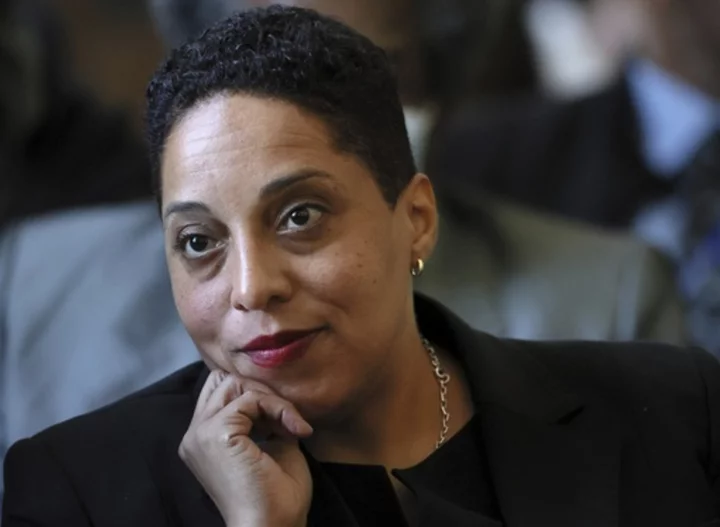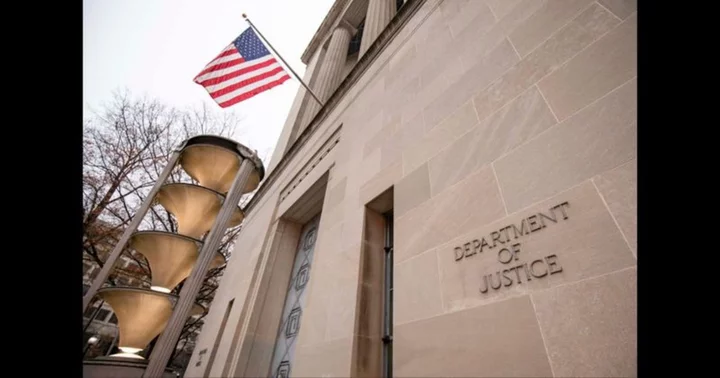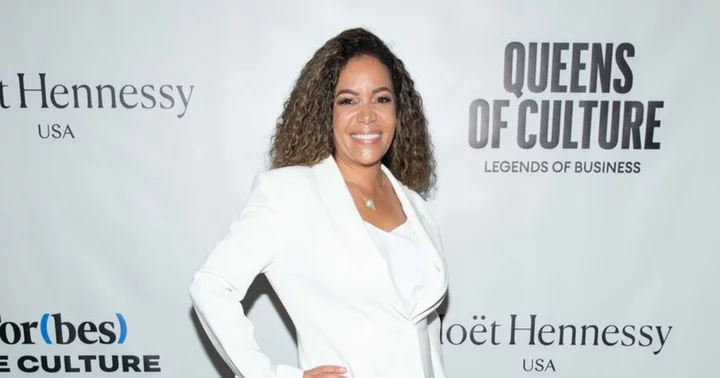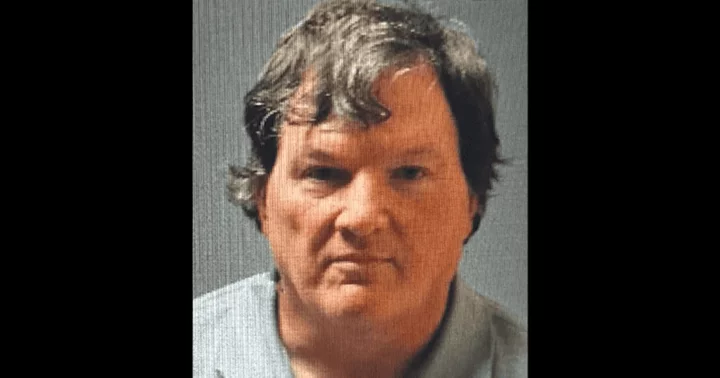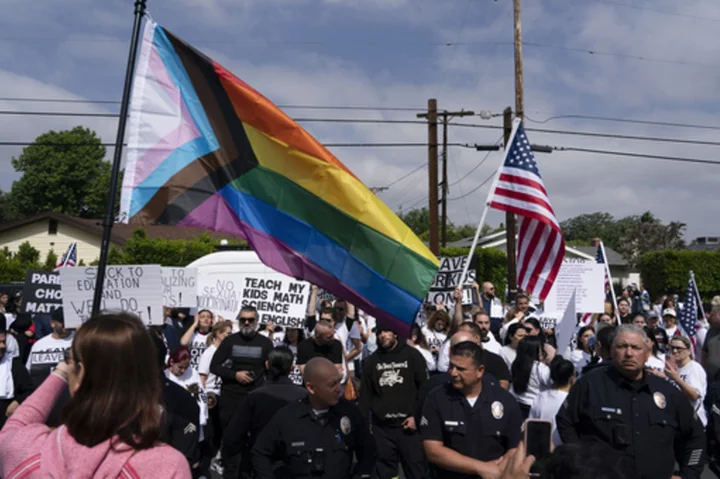ST. LOUIS (AP) — Embattled St. Louis Circuit Attorney Kim Gardner, who this month announced she would resign effective June 1, said Tuesday she is leaving office immediately, ending a turbulent tenure marked by frequent criticism, especially from Missouri's Republican leaders.
A statement from Gardner’s office said she has been working with St. Louis County Prosecuting Attorney Wesley Bell on the transition plan so his office can take over city cases “to prioritize public safety.” It didn’t explain why the transition was happening sooner than expected.
The sudden announcement caught Bell and his staff off guard, uncertain as to who was in charge of prosecuting cases in St. Louis.
“Her unexpected resignation has put us in kind of a gray area,” Bell’s spokesman, Chris King, said during a news conference Tuesday afternoon. Bell was waiting to hear either from the St. Louis presiding judge or from Gov. Mike Parson on how to proceed, King said.
Parson, a Republican, is tasked with appointing Gardner's permanent replacement. Parson planned to speak with reporters in St. Louis later Tuesday.
Gardner had been facing an ouster effort by Missouri's attorney general and was under scrutiny from Republican-led state lawmakers when she announced May 4 that she would resign, effective June 1. But on Tuesday, Gardner announced the end of her tenure.
“Effective immediately, Kimberly M. Gardner will end her service as the City of St. Louis Circuit Attorney,” the statement read. “Ms. Gardner has been committed to serving the people of the City of St. Louis and has done all she can to ensure a smooth transition.”
Gardner's departure ends a tumultuous six-and-a-half years in office as the city's first Black top prosecutor. Gardner, a Democrat, was part of a movement of progressive prosecutors who sought diversion to mental health treatment or drug abuse treatment for low-level crimes, rather than incarceration, who sought to hold police more accountable, and who proactively sought to free inmates who were wrongfully convicted.
She butted heads with police and with Republican lawmakers almost from the beginning. A series of events this year culminated with her departure.
Attorney General Andrew Bailey filed a lawsuit in February seeking Gardner’s ouster on three grounds: failure to prosecute existing cases, failure to file charges in cases brought by police, and failure to confer with and inform victims and their families about the status of cases.
Gardner said Bailey's attack on her was politically and racially motivated.
Meanwhile, the Missouri House weighed a bill that would allow the governor to appoint a special prosecutor in St. Louis to handle violent crimes, effectively removing the bulk of Gardner’s responsibilities. The bill ultimately was set aside after Gardner's resignation.
A pivotal turning point in public opinion of Gardner came in February after 17-year-old Janae Edmondson, a volleyball standout from Tennessee, was struck by a speeding car after a tournament game in downtown St. Louis. She lost both legs.
The driver, 21-year-old Daniel Riley, was out on bond on a robbery charge despite nearly 100 bond violations that included letting his GPS monitor die and breaking the terms of his house arrest. Critics questioned why Riley was free despite so many bond violations. Even Democratic St. Louis Mayor Tishaura Jones questioned if Gardner should remain in office.
In recent weeks, criminal cases had to be delayed twice when prosecutors failed to show up for hearings, due in part to a high amount of turnover among assistant prosecutors. A judge scheduled a hearing on possible contempt of court for Gardner for one of the no-shows, but the hearing was not held before she resigned.
Gardner first drew the ire of Republicans in 2018 when she charged then-Gov. Eric Greitens with felony invasion of privacy, but the charge was eventually dropped. Greitens resigned June 1, 2018.
The Greitens case drew scrutiny that led to the conviction of Gardner’s investigator. Gardner received a written reprimand for failing to produce documents and mistakenly maintaining that all documents had been provided to Greitens’ lawyers.
In 2019, Gardner announced an “exclusion list” of city police officers prohibited from bringing cases to her office. The list included nearly 60 officers accused of posting racist and anti-Muslim comments on social media.
Through her tribulations, Gardner had her victories.
In February, she succeeded in convincing a judge to set aside the murder conviction of Lamar Johnson, who had spent nearly three decades in prison. Gardner took up his cause after an investigation her office conducted with help from the Innocence Project convinced her he was innocent in a 1994 killing. Johnson was convicted largely on the testimony of an eyewitness who later alleged that he had been coerced into his statements.
On Friday, Gardner filed a motion seeking a hearing to vacate the sentence of another longtime inmate, Christopher Dunn. Dunn has spent 33 years in prison for a murder that Gardner now believes he didn't commit. The only eyewitnesses — boys at the time of the crime — have since said they, too, were coerced by police and prosecutors.
Bell, 48, is a former city councilman in Ferguson, Missouri, the town where the fatal police shooting of 18-year-old Michael Brown led to months of unrest in 2014. Bell defeated longtime Prosecuting Attorney Bob McCulloch in the Democratic primary in 2018 and easily won in that year's general election. He was reelected in 2022.
Like Gardner, Bell has taken progressive steps such as halting prosecution of low-level drug crimes, and establishing a separate unit to review possible wrongful convictions and allegations of police misconduct.
St. Louis County isn’t alone in its willingness to take on city cases, King said. Bell “has been on the phone with every prosecuting attorney, every district attorney in the region” to try and help stabilize the St. Louis office.
“The city of St. Louis’ safety is critical to the safety of St. Louis County,” King said.

